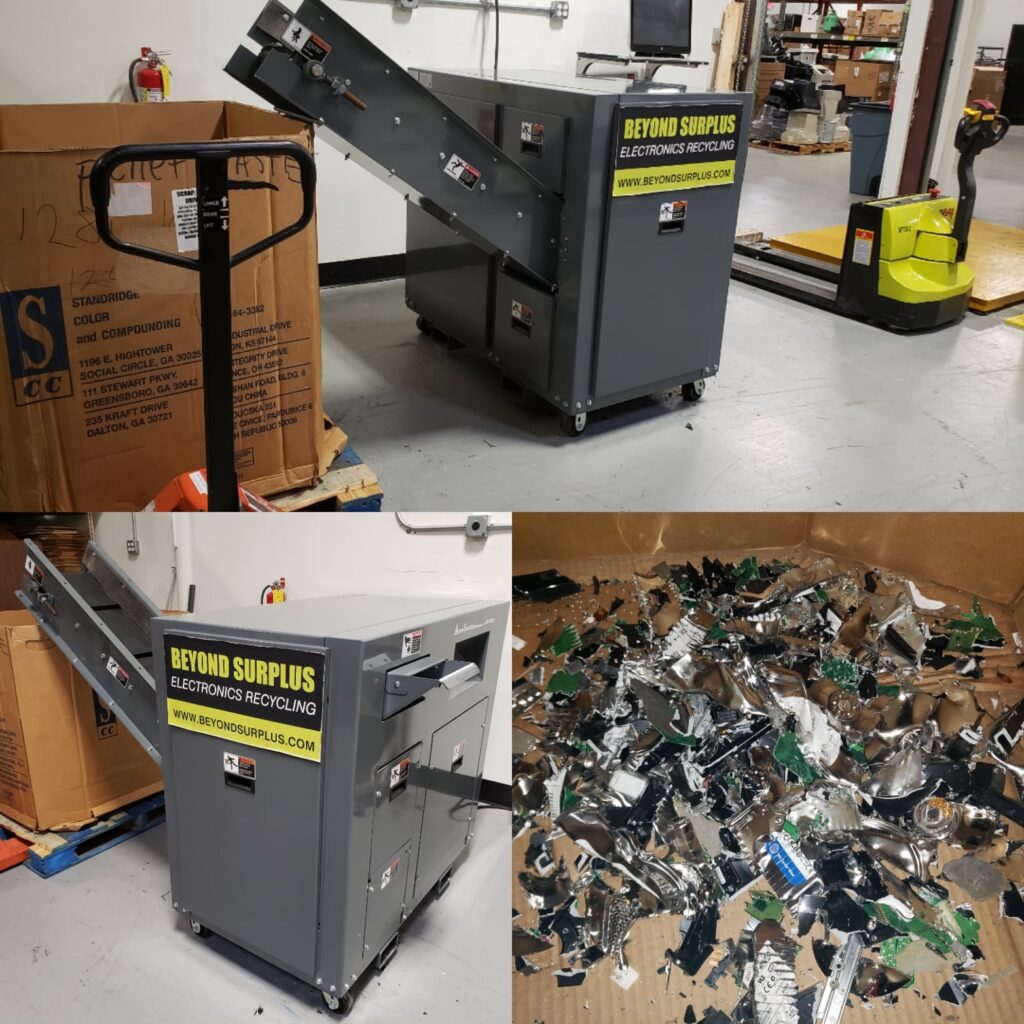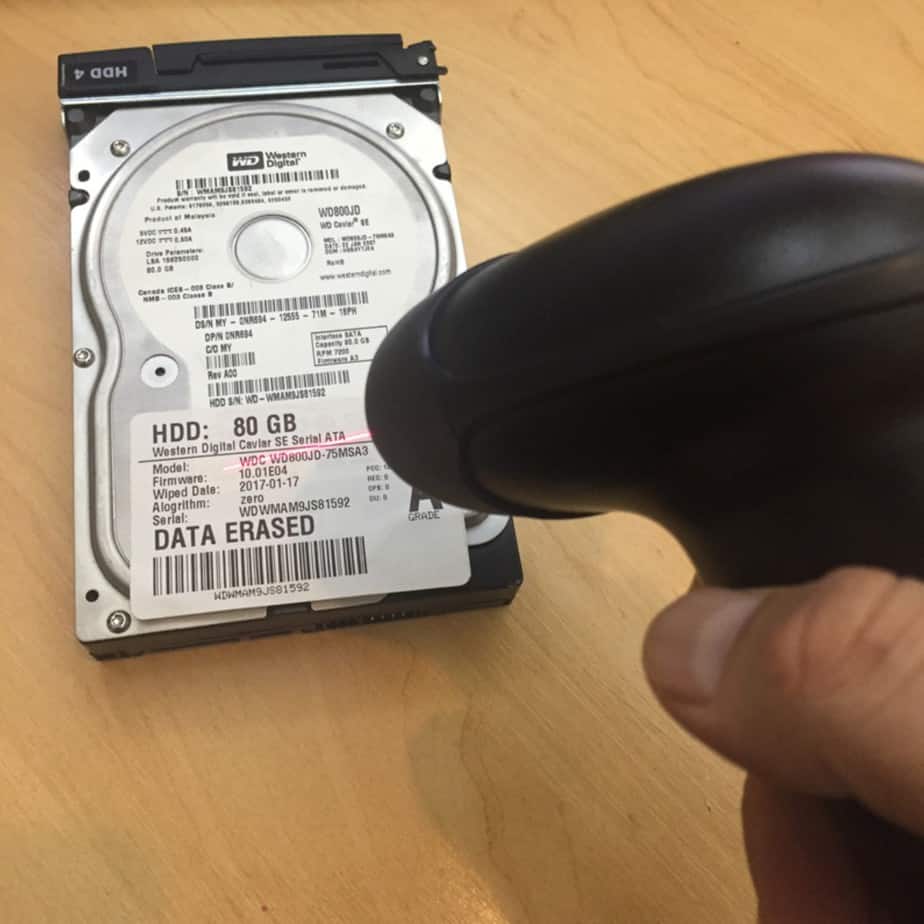Data Destruction 101 – A Comprehensive Guide to Keeping Your Information Secure
For many businesses, the security of sensitive data is a top priority. Data protection protocols are essential to preventing hackers and other criminals from accessing customer’s personal information, financial records, and confidential company data. By properly destroying physical documents and digital files that contain this valuable information using effective data destruction techniques, you can help ensure an extra layer of safety for your business and guarantee peace of mind for yourself and your customers. In this blog post, we’ll provide expert advice on how to securely delete critical data as well as tips to keep track of all physical assets in order to minimize future risk. Read on for the best strategies to properly protect your priceless files!
Understand the importance of data destruction – why it’s critical to your security
In today’s world, data and information hold paramount value, and as such, it has become increasingly important to ensure its security. The data we share with individuals or organizations is critical in our daily lives, and it is essential to know what happens to it once we’re done with it. This is where data destruction comes into play. Data destruction is the process of destroying or wiping data from devices such as hard drives, USBs, and mobile phones. It’s vital because deleted data can still be recovered with the right tools, leaving you vulnerable to identity theft or fraud. It’s not just individuals who need to be vigilant about data destruction; companies have a far greater responsibility given the sensitive data they hold. Failure to destroy data properly can lead to serious consequences, such as data breaches and regulatory non-compliance, which will undoubtedly damage trust, reputation, and financial standing. Data destruction is an essential security measure that everyone should take seriously. It’s crucial to prioritize data protection in your personal and business life, and implementing an effective data destruction policy is one of the best ways to do so.
Identify what type of data destruction is applicable to your business
Data destruction is a critical aspect of information security that is often overlooked. It is crucial for businesses to identify what type of data destruction is applicable to their operations as it not only protects the organization’s sensitive information but also the privacy of their clients. Depending on the nature of the business, there are several approaches to data destruction, each with varying degrees of effectiveness and security. For instance, businesses that handle large amounts of confidential data can use physical destruction methods like shredding or incineration. On the other hand, businesses that deal with digital data can use software-based solutions that overwrite data multiple times, making it unrecoverable. Ultimately, data destruction is not something that businesses should take lightly as a single data breach can have devastating consequences. By properly identifying what type of data destruction is applicable to their business, organizations can ensure their data remains safe and secure.

Familiarize yourself with data destruction regulations and laws
As businesses and organizations continue to collect and store large amounts of sensitive data, it has become increasingly important to familiarize oneself with data destruction regulations and laws to ensure compliance and protect against cybersecurity threats. In today’s digital landscape, data breaches and cyber-attacks can have far-reaching consequences, including financial loss, damage to brand reputation, and legal action. It is important to not only understand the regulations and laws regarding data destruction but also invest in secure data destruction practices to protect against these threats. This includes proper disposal of electronic devices, use of encryption and secure erasure methods, and implementation of policies and procedures for data destruction. In short, staying up to date with data destruction regulations and laws should be a top priority for any business or organization that values the privacy and security of their sensitive data.
Explore the different methods of data destruction, such as degaussing, overwriting, and pulverization
As data breaches become increasingly prevalent and sophisticated, it is pivotal for individuals and organizations to ensure that their sensitive information is disposed of in a manner that is secure and irretrievable. Explore the different methods of data destruction, such as degaussing, overwriting, and pulverization, which are utilized to erase data on electronic devices. Degaussing involves the use of a strong magnetic field to erase data, rendering a device useless. Overwriting entails the rewriting of the entire disk, making it difficult to retrieve any original data. Lastly, pulverization involves physically destroying the device by shredding or crushing it, rendering it unrecoverable. It is critical that organizations adhere to industry regulations, such as the National Institute of Standards and Technology (NIST) Special Publication 800-88, to ensure that data is disposed of properly and in compliance with legal requirements. Taking the necessary measures to protect and destroy data can prevent unauthorized access or misuse and safeguard against the negative consequences of data breaches.
Consider the cost-benefit analysis for each method of data destruction in order to decide which is right for you
When it comes to permanently disposing of sensitive data, it’s important to carefully consider the cost-benefit analysis for each method of data destruction. Some methods may be more effective but also more expensive, while others may be cheaper but less secure. For example, physical destruction of hard drives may offer complete assurance that the data is irretrievable, but it can also be more costly and time-consuming than other methods. On the other hand, software-based data destruction may be cheaper and quicker, but it may not offer the same level of certainty that the data is truly gone. Ultimately, the right method of data destruction will depend on the specific needs and priorities of the organization or individual in question. But by weighing the costs and benefits of each option, it’s possible to make an informed decision that strikes the right balance between security, affordability, and convenience.
Take advantage of certified data destruction services if needed
In today’s digital age, protecting sensitive information has become more critical than ever before. Organizations not only need to safeguard their own data but also that of their clients and customers. With the amount of information being stored on digital devices, it is essential that companies have a reliable and secure way to dispose of such data. This is where certified data destruction services come in. These services provide a safe, secure, and efficient solution for destroying data. By using certified data destruction services, businesses can rest assured that their sensitive information will be completely eradicated from the device and will not fall into the wrong hands. Moreover, not only is the data destroyed, but the device itself is also disposed of responsibly, further reducing any potential risks. So, if you have confidential data that needs to be destroyed, it is definitely worth taking advantage of certified data destruction services.
Ultimately, the importance of data destruction within your organization cannot be understated. By being aware and proactive about data destruction, you can make smart decisions to ensure your company’s safety. You should become familiar with the various forms and regulations associated with data destruction, as well as the cost-benefit analysis of each option. Consider utilizing industry-approved vendors to help manage data destruction projects. Taking these steps will give you the peace of mind that your data is being handled responsibly in accordance with all necessary regulations and laws. Your company worked hard for its information, now it’s time to work hard for its protection – act now to protect your business!

Beyond Surplus, Electronics Recycling, IT Equipment Disposal & Data Destruction
https://www.google.com/maps?cid=14474660673037836871
1835 S Cobb Industrial Blvd SE #105, Smyrna, GA 30082
(404) 334-9789
https://www.beyondsurplus.com/


